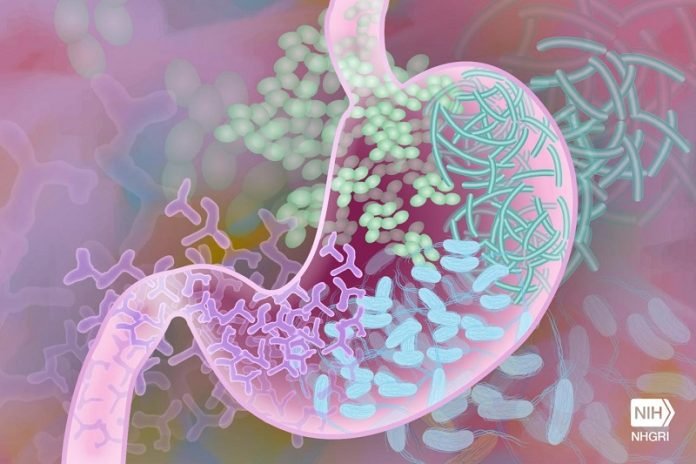
Meditation is increasingly being used to help treat mental health disorders, such as depression, anxiety, substance abuse, traumatic stress, and eating disorders as well as chronic pain.
In a study from Shanghai Jiao Tong University and elsewhere, scientists found regular deep meditation, practiced for several years, may help to regulate the gut microbiome and lower the risks of physical and mental ill health.
They showed that the gut microbes found in a group of Tibetan Buddhist monks differed from those of their secular neighbors, and have been linked to a lower risk of anxiety, depression, and heart disease.
Previous research has found that the gut microbiome can affect mood and behavior through the gut–brain axis.
This includes the body’s immune response, hormonal signaling, stress response and the vagus nerve—the main component of the parasympathetic nervous system, which oversees an array of crucial bodily functions.
The current study analyzed the stool and blood samples of 37 Tibetan Buddhist monks from three temples and 19 secular residents in the neighboring areas.
Tibetan Buddhist meditation originates from the ancient Indian medical system known as Ayurveda, and is a form of psychological training, say the researchers.
The monks in this study had been practicing it for at least 2 hours a day for between 3 and 30 years.
None of the participants had used agents that can alter the volume and diversity of gut microbes: antibiotics; probiotics; prebiotics; or antifungal drugs in the preceding 3 months.
Both groups were matched for age, blood pressure, heart rate, and diet.
The team found big differences in the diversity and volume of microbes between the monks and their neighbors.
Bacteroidetes and Firmicutes species were dominant in both groups, as would be expected. But Bacteroidetes were significantly enriched in the monks’ stool samples (29% vs. 4%), which also contained abundant Prevotella (42% vs 6%) and a high volume of Megamonas and Faecalibacterium.
The team says several bacteria enriched in the meditation group [have been] associated with the alleviation of mental illness, suggesting that meditation can influence certain bacteria that may have a role in mental health.
These include Prevotella, Bacteroidetes, Megamonas and Faecalibacterium species, the previously published research suggests.
The researchers then found that several protective anti-inflammatory pathways, in addition to metabolism—the conversion of food into energy—were enhanced in the meditation people.
Finally, blood sample analysis showed that levels of agents associated with a heightened risk of heart disease, including total cholesterol and apolipoprotein B, were much lower in the monks than in their secular neighbors by their functional analysis with the gut microbes.
These results suggest that long-term deep meditation may have a beneficial effect on gut microbiota, enabling the body to maintain an optimal state of health.
If you care about gut health, please read studies about common high blood pressure drug that may harm gut health, and snacking on almonds can boost your gut health.
For more information about health, please see recent studies that mindfulness may effectively lower blood pressure, and results showing MIND diet could improve cognitive health in older people.
The study was conducted by Ying Sun et al and published in General Psychiatry.
Copyright © 2023 Knowridge Science Report. All rights reserved.



